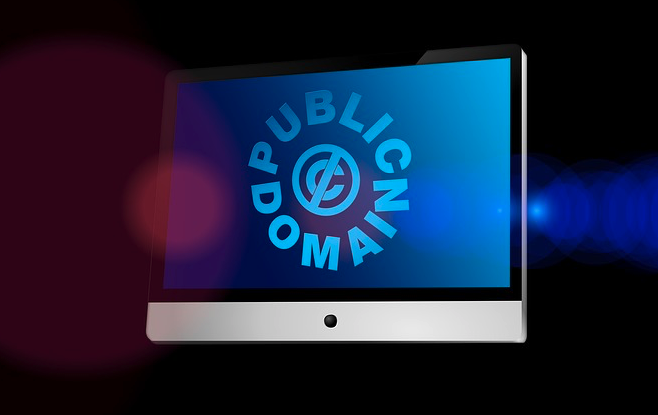What’s the ‘Public Domain’ and How Can I Use It in My Business?

Public domain is a phrase commonly used to describe content that is not protected by U.S. copyright law and may be used freely, without obtaining permission from, or compensating, the creator or copyright owner. Interestingly, the term “public domain” is not used in the U.S. Copyright Act.
The criteria for works to enter the public domain is fairly simple. Content may not be protected under copyright law, and therefore be in the public domain, for any of the following reasons:
The copyright has expired.
Generally, the duration of copyright protection for works created after January 1, 1978, is the life of the author, plus 70 years. Therefore, the content becomes part of the public domain 70 years after the death of its author. For anonymous or pseudonymous work, or work made for hire, the copyright expires 95 years after its publication, or 120 years from its creation, whichever is first. For anything created prior to 1978, the term varies depending on several factors.
It was created by the federal government.
Any work created by the United States federal government does not have copyright protection.
It does not have “sufficient originality.”
Under the Copyright Act, a work must satisfy the “originality requirement,” which states that (1) a work must have “at least a modicum” of creativity, and (2) must be the independent creation of its author.
There was no proper copyright notice prior to March 1, 1989.
As of March 1, 1989, it is no longer mandatory to issue a proper copyright notice in order to protect a work. However, a copyright notice was required to protect all published work before then. Without this notice, the work automatically became part of the public domain.
The content is not fixed in tangible form.
Content must be written or recorded in order to be protected by copyright. Therefore, works such as speeches, lectures, or comedy routines that were not written or recorded in any manner are part of the public domain.
An Exception to Public Domain
Although, individual pieces of work may be part of the public domain, collections of those same works may be protected by copyright. For example, if someone has collected images from the public domain on a website or in a book, that collection as a whole may be protected by copyright. The public is free to use the individual images present in the book, however, the entire collection is protected.
Using the Public Domain to Market Your Business
Wondering how to use the public domain to your benefit? Here are a few ways you can incorporate the content into your marketing materials:
Include Public Domain Images in Marketing Materials
It’s a well-known fact that social media posts, blog posts, and other marketing materials perform better when they include photos. However, most small businesses cannot afford to hire a photographer for every photo need; so, they turn to stock photo sites, like Deposit Photos, or images available in the public domain.
Source Music from the Public Domain for Videos
Often, businesses need background music for videos. Rather than creating original music or purchasing stock music, they can source it from the public domain instead.
Repurpose Old Content into Something New.
Depending on your audience and products or services, there may be a piece in the public domain that you could easily break up into parts and turn it into an eBook, newsletter, online course, webinar, or lead magnet.
Monetizing the Public Domain
The following are by no means get rich quick schemes, however, there are a few ways in which you could generate income by using content available in the public domain:
Digitize Books
Many pieces of classic literature are available to the public without copyright, allowing anyone to download, share and sell them. Members of the public could easily repackage this work and sell their own versions online. For example, author Ron Douglas has done very well for himself by selling original and public domain recipes in books on Amazon.
Use Public Domain Images on Popular Products
Sites like Café Press and Zazzle allow sellers to upload images and artwork and create listings for items such as t-shirts, mugs, reusable bags, and more. It’s easy and free to upload images from the public domain and collect seller’s fees if someone buys your product.
Sell Movies and Shows
Old movies and cartoons, as well as all government-created films, are in the public domain. A savvy entrepreneur could choose a niche, obtain copies of videos in that niche, and then burn copies onto DVDs, or create a paid site where users can view or download the videos for a fee.